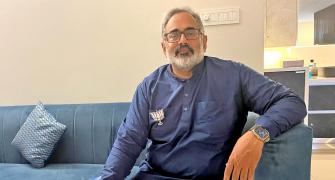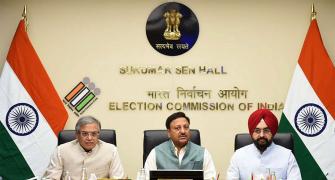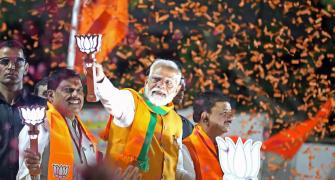Indicating a softening of its stand, the All India Muslim Personal Law Board on Sunday said it would consider any proposal from Kanchi shankaracharya Jayendra Saraswati to resolve the vexed Ayodhya issue despite earlier insisting only the court could resolve the issue.
"Though the matter is in the court and we have made it clear that we shall abide by the court verdict, if a good proposal comes to us from any quarter, we shall consider it," AIMPLB president and noted Islamic scholar Maulana Rabe Hasan Nadvi told PTI in Lucknow.
At the same time, he hoped the court decision on the Ayodhya issue would come soon as he believed it would put an end to the dispute.
The cleric denied the temple issue was discussed during his recent meeting with the shankaracharya of the Kanchi Peeth Jayendra Saraswati.
"The shankaracharya had come to inquire about my health. We did not discuss the temple issue though he said he had some proposal to resolve the dispute," Nadvi said.
"I sought the proposals in writing," he said adding that so far he had not received anything from the shankaracharya.
"If there is any proposal, I shall refer it to the (AIMPLB) working committee, which will consider it," he said.
Nadvi reacted sharply to Jama Masjid Shahi Imam Syed Ahmed Bukhari's statement that the AIMPLB would not be allowed to bargain on the Babri masjid issue saying Bukhari was in the habit of making 'irresponsible remarks'.
In another development, AIMPLB vice-president Maulana Kalbe Sadiq withdrew his resignation from the Babri Masjid Action Committee, tendered reportedly following differences in the leading Muslim group.
PTI







